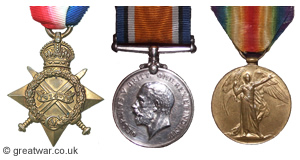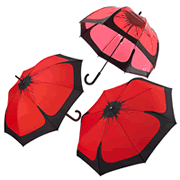British WW1 Medal Records 1914-1920
it is believed that the records of medals issued for service during 1914-1920 form the only more or less complete list of people who, by the fact that they were eligible to receive a WW1 medal, can be considered to have “participated” in the First World War. It should, therefore, be possible to trace and confirm that an individual served in the First World War from the medal records.
The records of the issue of medals and awards were not damaged by enemy bombing in the Second World War, as was the case for the Service Records.
- Medal Rolls 1914-1920
- Medal Index Cards (or Medal Rolls Index) 1914-1920
- The London Gazette: Awards and Citations
- Where to View Medal Records
- Replacing WW1 Campaign Medals
Medal Rolls 1914-1920
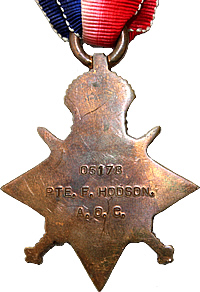
|
The information recording every individual and their eligibility for a campaign medal and gallantry award are contained in the Medal Rolls.
Medals and awards included in the Medal Rolls
- The 1914 Star
- The 1914-15 Star
- British War Medal
- Allied Victory Medal
- Territorial Force War Medal
- Allied Subjects Medal
- Victoria Cross (V.C.)
- Distinguished Conduct Medal (D.C.M.)
- Distinguished Service Order (D.S.O.)
- Military Cross (M.C.)
- Military Medal (M.M.)
- Silver War Badge (S.W.B.)
- Women's service awards
- Mentioned in Despatches (M.I.D.)
The Medal Rolls were not damaged by enemy bombing in the Second World War. For this reason it is believed that these Rolls form the only more or less complete list of people who, by the fact that they were eligible to receive a WW1 medal, can be considered to have “participated” in the First World War. It should, therefore, be possible to trace details for an individual who served in the First World War from the surviving medal records.
The Medal Rolls were created as lists of those individuals entitled to one or more campaign medals. The Medal Rolls list individuals by the military unit they were serving with at the time of their entitlement. The information contained in the listings can provide an additional “remark” or detail for an individual which is previously not known, so it can be useful to check these listings when carrying out research.
If you do not know which military unit the individual you are reseaching was serving with, it is advisable to consult the indeces for the Medal Rolls first. This should be the best way of confirming the unit or units in many cases, with which an individual saw service in the First World War. The indeces are formed by the Medal Index Cards.
Medal Index Cards (or Medal Rolls Index) 1914-1920
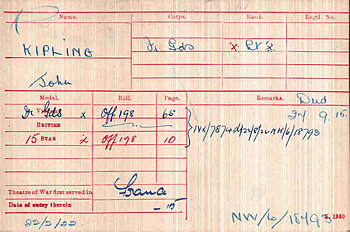
|
During the late part of the First World War the Army Medal Office began a system of making out an index card for each individual. This was done to create a record of every person's collective entitlement to campaign medals and gallantry medals. Each card was created by compiling the data from the existing Medal Rolls. In the event of the individual's entitlement to an additional medal, the card would be added to as appropriate.
A Medal Index Card may include the following information. Note that the cards filled in by the Army Medal Office varied slightly from time to time and therefore the information recorded on a card may vary slightly.
- individual's name
- service number (usually included)
- rank
- unit(s) served in
- date of enlistment
- the first theatre of war in which they served and a date (although this is generally only provided if it was before 1st January 1916)
- Medal(s) received
- the Army Medal Office Roll and issue number for each medal the person was entitled to
- whether the individual was killed or discharged
- remarks
- correspondence notes
- address
Medal Index Cards Re-housed
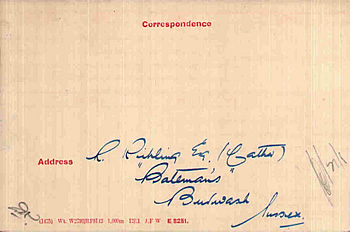
|
A few years ago the Ministry of Defence was looking to remove the Medal Index Cards from its secure storage area. It consisted of several million cards in many metal filing cabinets. There was a danger that the cards might be destroyed. This would have been a tragedy; although most of the cards had been copied previously this was only performed in low quality black and white and only the fronts of each card had been scanned. Faint notes written in pencil could not be seen and some cards contain valuable information on the back.
Thanks to The Western Front Association and other concerned individuals this invaluable source of information, and memorial to the men and women who served in the First World War was rescued. The Medal Index Cards are now stored in a safe and secure location and furthermore both sides of every card have been electronically scanned in high resolution colour and are now available online [see ancestry.co.uk below].
The London Gazette: Awards and Citations
All the military appointments and the awards of gallantry and meritorious service were, and still are, announced in the London Gazette.
The London Gazette, together with the Edinburgh and Belfast Gazettes, is the official paper of the goverment in the United Kingdom. The London Gazette includes notices relating to State, Parliament, Planning, and so on. The Supplements to the London Gazette contain single subjects of The Queen's Birthday Honours and New Year Honours, Imperial Service Medal, Ministry of Defence (i.e. Military Awards, Promotions) and The Queen's Award for Enterprise.
The following gallantry awards published in The London Gazette with a citation: The Victoria Cross (V.C.), the Distinguished Service Order (D.S.O.), the Military Cross (M.C.) and the Distinguished Conduct Medal (D.C.M.).
Where to View Medal Records
The London Gazette
An online historical archive has been created from the digitization of the printed volumes. The archive includes the period covering the World Wars (1914-1920) and 1939-1948).
The London Gazette website contains basic information about how to get started on searching for military awards and citations:
Website: www.gazette.co.uk Awards and Accreditation / WW1 Medals
The National Archives, Kew
The Medal Rolls, formerly held by the Army Medal Office in Droitwich, are available to view for free by the public at the National Archives in Kew.
The Medal Index Cards are available on microfiche and can be viewed in classification WO 372. Using the references provided on the Medal Index Card for the issue number of each medal, then the Medal Rolls can be viewed according to that number in classification WO 329 to see if there is any further detail for the individual is given in the Rolls. Members of staff at the National Archives will be pleased to assist with any enquiries during a search.
Alternatively the Medal Index Cards are available to search online from the National Archives. However, it is worth noting that the Medal Index Cards were scanned onto microfiche by the National Archives some years ago in black and white and only the front of each card was scanned. Some cards did contain information on the reverse side, which may generally relate next of kin. Medal Index Cards are not available to view before paying for a download.
Awards and citations listed in The London Gazette are available to view at the National Archives.
For further information about the medal records and documents available online and at the National Archives see the WW1 medals section of the National Archives website at:
Website: www.nationalarchives.gov.uk Medal Records
www.ancestry.co.uk
Since the rescue and rehousing of the Medal Index Cards in the early years of 2000, the entire collection of several million cards has been scanned in colour, with the front and reverse side of each Medal Index Card available to view online at www.ancestry.co.uk. There is an annual subscription fee for the service, which is available to buy with a 14 day free trial.
Website: www.ancestry.co.uk Medal Index Cards
Imperial War Museum, London
The Imperial War Museum has a set of copies of The London Gazette to view. Visitors can make an appointment to view copies in the Reading Room.
Reading Room at www.iwm.org Books and Publications
Replacing WW1 Campaign Medals
The United Kingdom's Ministry of Defence Medal Office does not replace lost or stolen British campaign medals issued to servicemen and women or their next-of-kin after the First World War.
An information page by the Ministry of Defence (MoD) Medal Office is available, and this question is one of the FAQs as the very last question. You can see the MoD page here:
Website: www.gov.uk/the-ministry-of-defence-medal-office
Replica Medals & Medal Ribbons
Replacement replica medals, medal ribbons and a replica of the Next of Kin Memorial Plaque can be obtained. A highly recommended specialist military medals company is C & J Medals, based in Reading, Berkshire:
Website: www.cjmedals.co.uk
Related Topics
A Guide to British Campaign Medals of WW1
A Guide to British Awards for Gallantry or Meritorious Service in WW1
